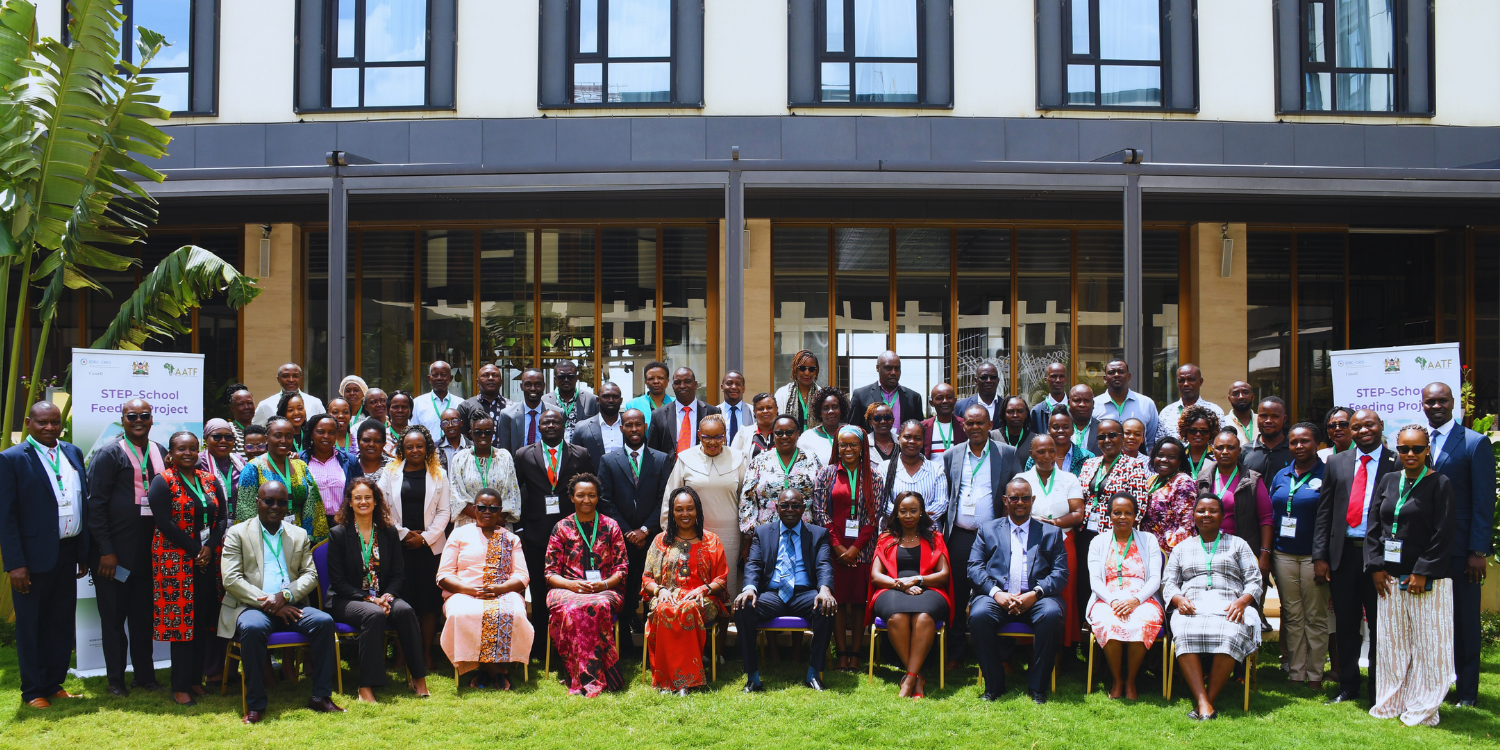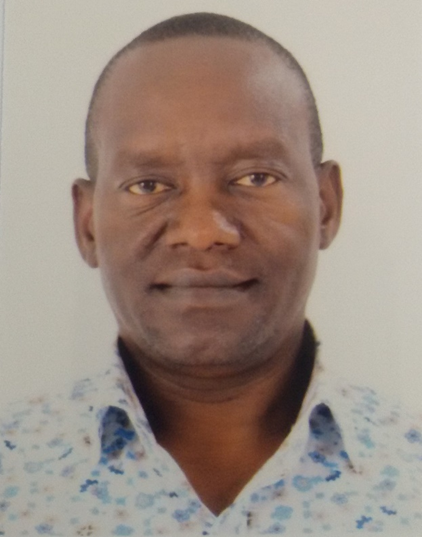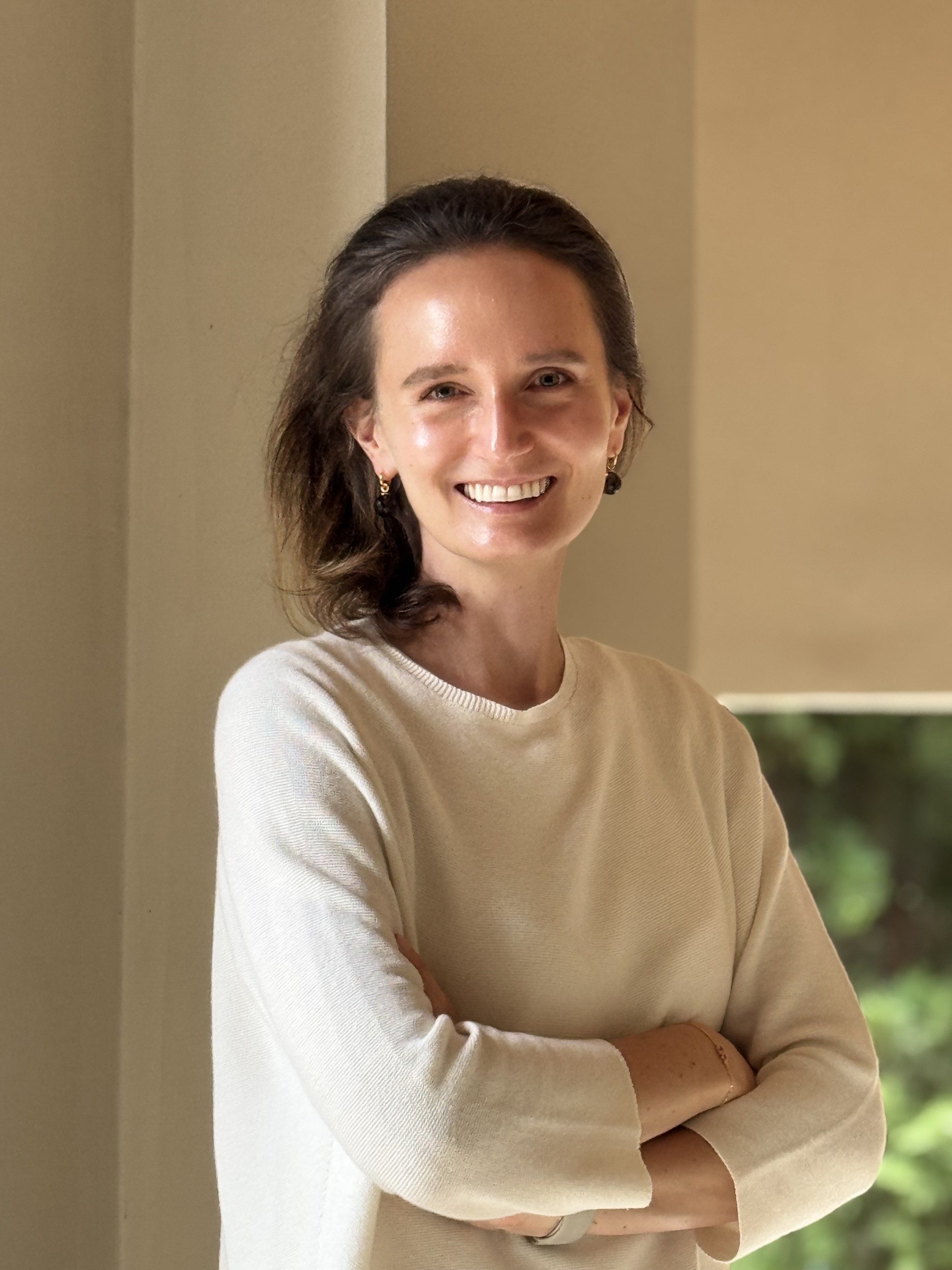
(Nairobi, Kenya, April 30, 2025) – AATF, Tegemeo Institute of Agricultural Policy and Development of Egerton University, and Tanager — in collaboration with the Government of Kenya and with grant support from the International Development Research Centre (IDRC) — have today launched an applied research initiative to boost home-grown school feeding in Kenya.
Dubbed the SusTainable, Inclusive and Equitable Procurement in Home Grown School Feeding Programmes in Kenya (STEP– School Feeding), the project will amplify efforts to ensure school-going children have access to nutritious, healthy, and sustainable diets through the local food ecosystems across four counties in Kenya, namely, Embu, Isiolo, Makueni, , and Nairobi. The project will run for three years till 2027.
The STEP -School Feeding Project is part of IDRC Global School Food Catalyzing Climate Resilient, Inclusive, and Sustainable Procurement initiative (CRISP), that is implemented to catalyse effective home-grown school feeding in Kenya.
Dr. Edidah Lubega Ampaire, Senior Program Specialist at IDRC, expressed her enthusiasm at the launch of the STEP -School Feeding program, which is part of the IDRC funded CRISP School Food-program within the Africa region.
She noted that the project is well aligned with local needs and priorities, particularly those involved in food production, sourcing, processing, distribution and preparation of school meals.
“The use of locally sourced home-grown school food is encouraged to drive climate resilience, sustainability, inclusivity, and gender equality towards more sustainable and thriving communities and food systems, “she said.
Dr. Canisius Kanangire, Executive Director of AATF, was confident that AATF will leverage its rich 20-year history of effectively delivering innovative technologies to smallholder farmers across Africa, along with its new strategic focus on Nutrition-Sensitive Agriculture, to enhance effectiveness of the school feeding initiative.
“Through this project, AATF will work to position smallholder farmers at the centre of homegrown school feeding in Kenya, ensuring school meals are prepared using locally available, nutritious, diverse ingredients produced sustainably through the integration of agro-ecological practices,” Said Dr. Kanangire, adding that this approach will benefit school going children but also stakeholders in the local food system including farmers, aggregators and processors.
According to Davis Ndambo, Assistant Director, Partnerships and Resource Mobilization, National Council for Nomadic Education in Kenya (NACONEK), the advancement of universal meals coverage as per the Operational Plan for School Meals Programme Scale-up 2024-2030 is no longer a pipe dream; but a reality that everyone should be proud of. He reiterated the goal of the School Meal Coalition is to ensure that every child can receive a nutritious meal in school by 2030- with a focus on the most vulnerable learners.
The Operational Plan for SMP Scale-up 2024-2030 was developed by Kenya’s Ministry of Education, through NACONEK, in collaboration with the United Nations World Food Programme (WFP) and The Rockefeller Foundation to achieve Universal School Feeding in Kenya by 2030, scaling up from the 2.6 million beneficiaries to over 10 million by 2030.
According to Dr. Daniel Kyalo Willy, the Principal Investigator (PI) for the STEP-School Feeding Project who will be steering the project with his CO-PIs, Dr John Olwande from Tegemeo Institute and Dr Catherine Macharia-Mutie from Tanager stated that the project will draw expertise from diverse stakeholders to co-design a robust evidence-based systems for sourcing foods for schools to further strengthen school feeding in Kenya
Dr. Lilian Kirimi, Research Fellow, Tegemeo Institute of Agricultural Policy and Development- Egerton University, pointed out the importance of an enabling environment that promotes robust and gender- responsive Home-Grown School Feeding Programs (HGSFPs), supported by sustainable local food production and distribution systems. The project will conduct policy analysis to inform efforts for developing an enabling policy environment that for HGSFP in Kenya.
Maureen Munjua, Tanager Kenya Representative, said that the project will emphasize gender equity responsiveness in all the components of local food systems (production, processing, distribution and consumption) which will be linked to the existing Home-Grown School Feeding Programs. “We can build local economies while empowering women and youth in the achievement of food and nutritional security for our school going children,” she said.
School feeding initiatives in Kenya started in the 1980’s, then popularly known as School Meal Programs (SMPs) with donations and support from the World Food Program and other humanitarian organizations. In 2009, the SMPs were transitioned into Home Grown School Feeding Programs (HGSFPs) as a sustainable and integrated alternative to the long-term management of school feeding.
The STEP – School Feeding Project is an applied research initiative focusing on Home-Grown School Feeding Programmes by designing and piloting scalable, innovative, viable, and inclusive Systems for Sourcing Foods for Schools for school feeding initiatives in Kenya. Through this study, the project aims to identify existing gaps and highlight opportunities for scaling the Systems for Sourcing Foods for Schools to policy decision-makers in government and other agencies involved in home-grown school feeding programmes
——————————————-
About AATF (https://www. aatf-africa.org)
AATF provides farmers in Sub-Saharan Africa (SSA) with practical technology solutions to overcome farm productivity constraints. Founded in 2003, AATF is driven by the vision of a prosperous, resilient, food and nutrition secure Africa, where smallholder farmers’ livelihoods are transformed through agricultural innovations. Active in 24 countries in East, Southern and West Africa, over the past two decades we have emerged as one of the continent’s foremost technology transfer facilitators, trusted by both private and public sector institutions. AATF works beyond the product development segment to help commercialise and scale sustainable, demand-based technologies designed to address specific agricultural challenges. Active across the whole technology lifecycle, we positively transform farmers’ livelihoods and lives. Above all, we believe in providing the ‘freedom to innovate’. AATF’s proven expertise as a programmes and partnership facilitator, weaving together a broad range of actors for technology transfer, is unparalleled in Africa.
About Tanager
Tanager is a global development organization that empowers people to realize life-changing economic and social opportunities. We have 30 years of experience implementing gender-transformative and nutrition-sensitive agriculture approaches, connecting actors across the production supply chain, fostering knowledge and access for women, youth, and other marginalized groups, and unlocking sustainable, climate-smart economic opportunities for all. together to co-create economic and social opportunities that change lives. It addresses challenges at a systems level, working with market actors across the entirety of the value chain. Its expertise includes integrating gender and nutrition into agriculture, supporting institutions to strengthen their gender and nutrition approaches and enhancing women’s empowerment and nutritional improvements at the community level.
About Tegemeo Institute of Agricultural Policy and Development
Tegemeo Institute is a policy research institute under Egerton University, Kenya. It conducts research and analysis on policy in agriculture, rural development, natural resources and the environment. The Institute addresses micro and macroeconomic policy issues on farming, transportation, processing, marketing, and trade of agricultural products and inputs; sustainability of agricultural systems and natural resources as well as the environment; and commercialization, income growth and food security.
————-
For more information on the project, contact:
Joanne Muthie – Communications Liaison- STEP -School Feeding Project on j.muthie@aatf-africa.org or +254 785 903455






















































































